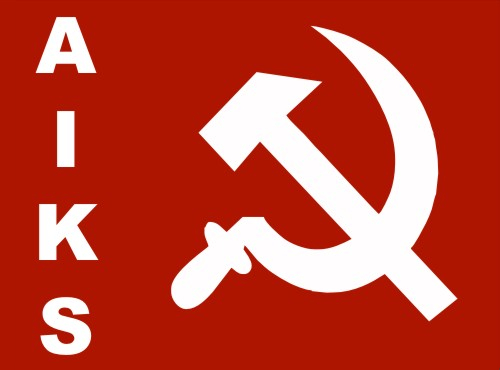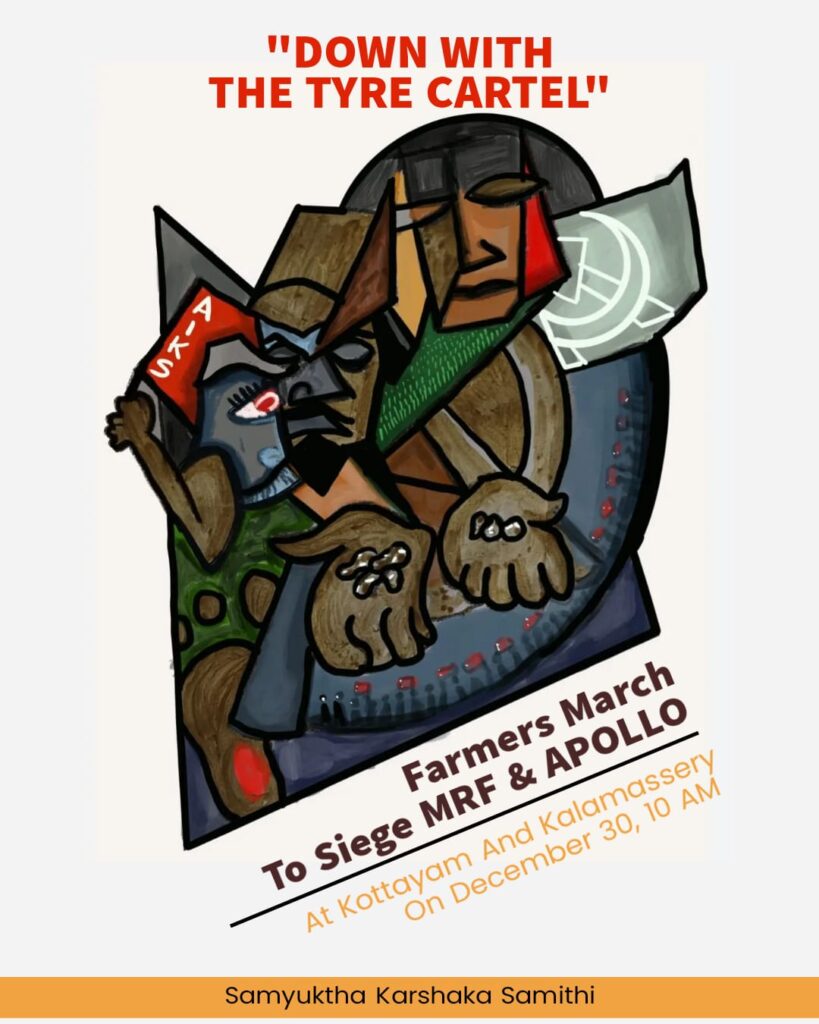A Case Study of Tyre Cartels by Monopoly Capital
Leeching on the Farmers, Squeezing the Consumers & Ruling the Industry; A Case Study of Tyre Cartels by Monopoly Capital by Nidheesh J Villatt
Abstract
Competition Commission of India (CCI) case against Tyre Monopolies
According to CCI, the controversial case is about “a cartel consisting of major domestic tyre manufacturers, namely CEAT, MRF, Apollo Tyres, JK Tyre, and Birla Tyres who have colluded to keep tyre prices at a high level in 2011-12 and sustained the high prices and reaped the the benefits of high profits in 2012-2013 and 2014-2015 when raw material prices for tyres had fallen.” Based on the investigation by the Director General(DG is the investigative arm of CCI), that was completed in 2018, the CCI found out that leading tyre companies and their corporate lobbying firm Automotive Tyre Manufacturers Association (ATMA) colluded to form a cartel and indulged in sharing information and fixing tyre prices in violation of section 3(3) of the Competition Act.
Analysis of the CCI case documents reveal that tyre monopolies benefited hugely from the “price crash” of natural rubber. In addition, the profit made at the cost of farmers was not transferred to consumers; in fact, the leading companies who are controlling more than 83% of the domestic market were consistently increasing the price of their products.The CCI imposed penalties of more than Rs. 1,788 crore on the Tyre companies and ATMA for legal violations, and the order was communicated to the companies in February 2022 “after a final go ahead by the Supreme Court”.
As a response to the CCI decision, AIKS wrote to the prime minister of India that the Government of India should “provide a grant of Rs1,788 crore, equal to the sum of monetary penalty imposed by CCI on the above five major tyre manufacturing corporate companies to set up a producer cooperative of Rubber farmers to establish world class tyre manufacturing unit under associated ownership”.
However, the tyre monopolies challenged the verdict of the CCI in National Company Law Appellate Tribunal (NCLAT). In December 2022, NCLAT set aside the CCI verdict and demanded that the CCI should pass a fresh order to reexamine “arithmetical and inadvertent errors” as well as to “review the penalty to save the domestic tyre industry”. The CCI filed an appeal in the Supreme Court challenging the NCLAT order and the top court will hear the appeal in September 2023.
Analysis
A critical analysis of the case history reveals that the two official bodies set up by the Government of India have taken conflicting positions. While the CCI took an objective position based on law, the NCLAT order has obliterated the national interest to promote the interests of corporate houses who profited at the cost of the primary producers of rubber, who are the farmers, and the consumers, simultaneously in a single stroke. This typical characteristic of neoliberal economic policy to mercilessly expropriate the producing classes and squeeze the consumers at the same time is to facilitate the primitive accumulation of capital. It exemplifies the phenomenon of synchronised action of International Finance Capital forces that play at global level and its growing integration with the realm of domestic Monopoly Capitalist forces in every country from above utilising the provisions of various instruments of international agreements.
The mainstream economic and journalistic analysis on violation of Competition laws by cartels in general, and the tyre cartel case in particular, are narrowly focusing on the harm on consumers and have left out primary producers of natural rubber, like farmers and plantation workers, from the analysis.This paper argues that collusive behaviour by tyre cartel should be historically located in the trajectory of capital accumulation by monopolies in the industry.
It reiterates that the cartel has severely affected primary producers by reducing the prices of rubber below the levels that would prevail when input buyers (Tyre MNCs) compete against each other. It is to be noted that Section 3(3) of the Competition Act specifies that any agreement that “directly or indirectly determines purchase or sale prices” is presumed to have a considerable effect on competition. Apart from this robbery on primary producers and consumers, the tyre cartel has ruined the livelihood of a large number of small traders and MSMEs. Tyre cartel establishes that the major contradiction in the rubber sector is the contradiction between the monopoly capital forces that run and benefit from the tyre and tube industry, automotive industry, and the associated speculative trade on one hand, and the non monopoly plantations, rich, medium, and small peasants who grow rubber, the skilled & unskilled labourers, petty traders, and the MSMEs on the other.




